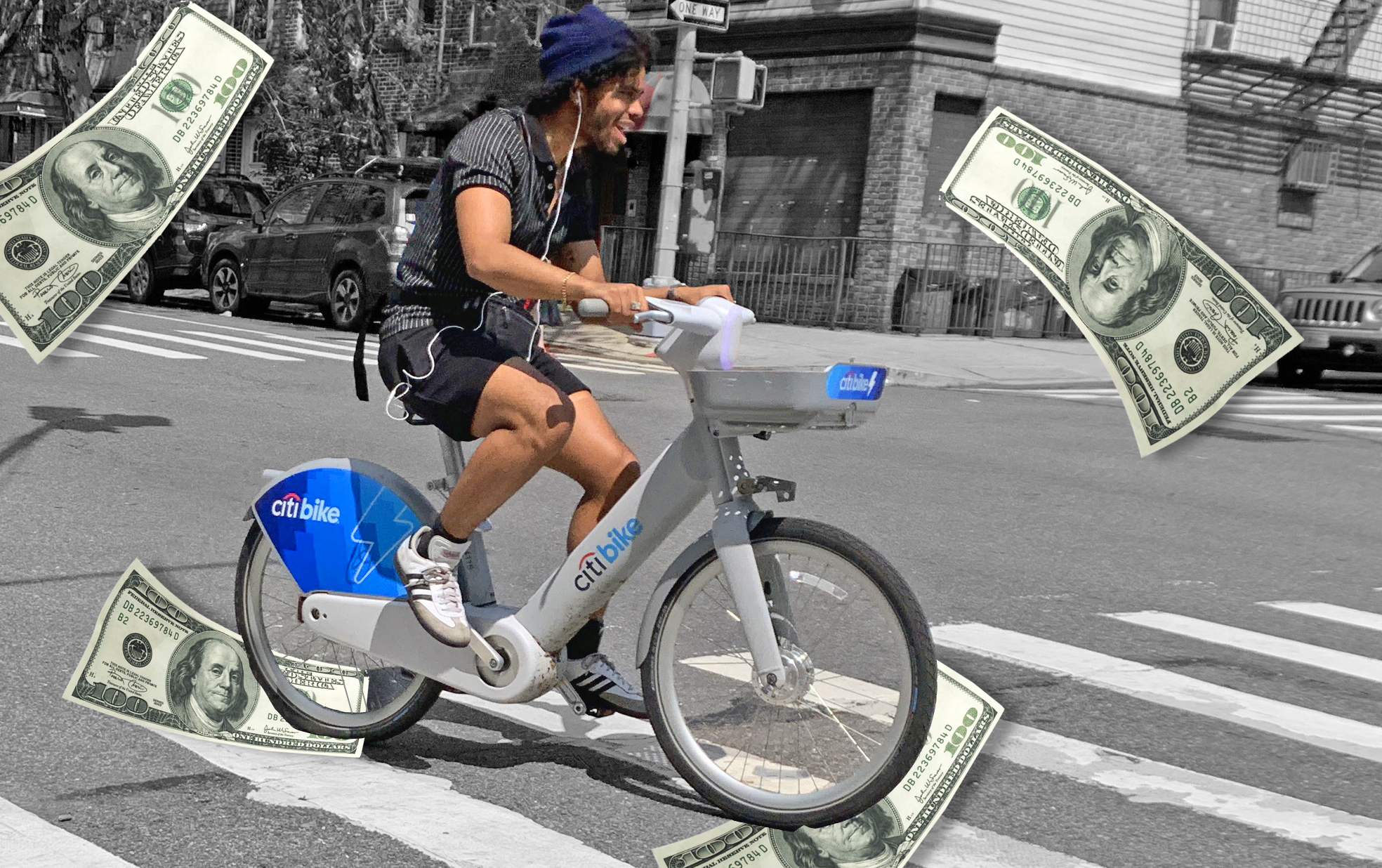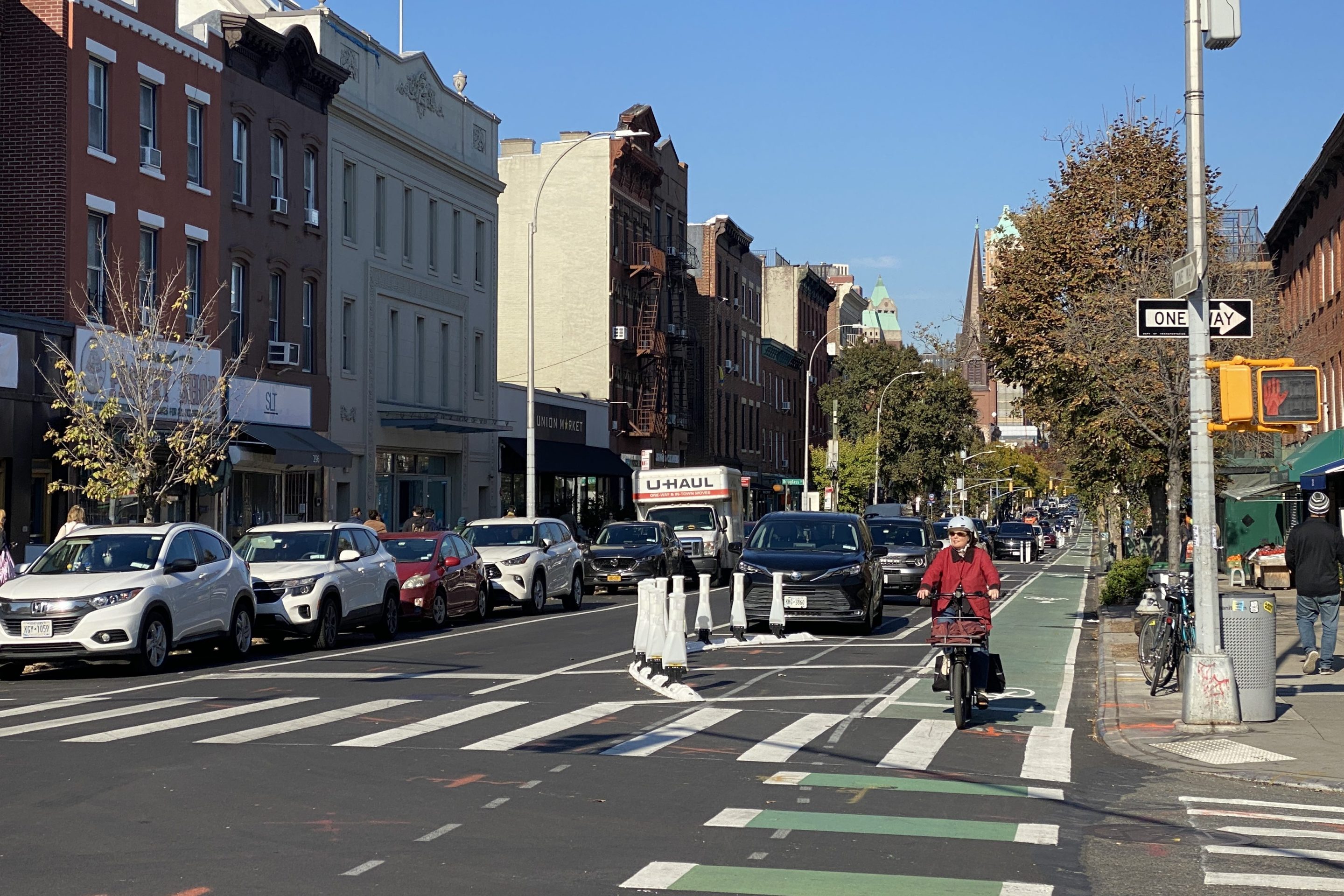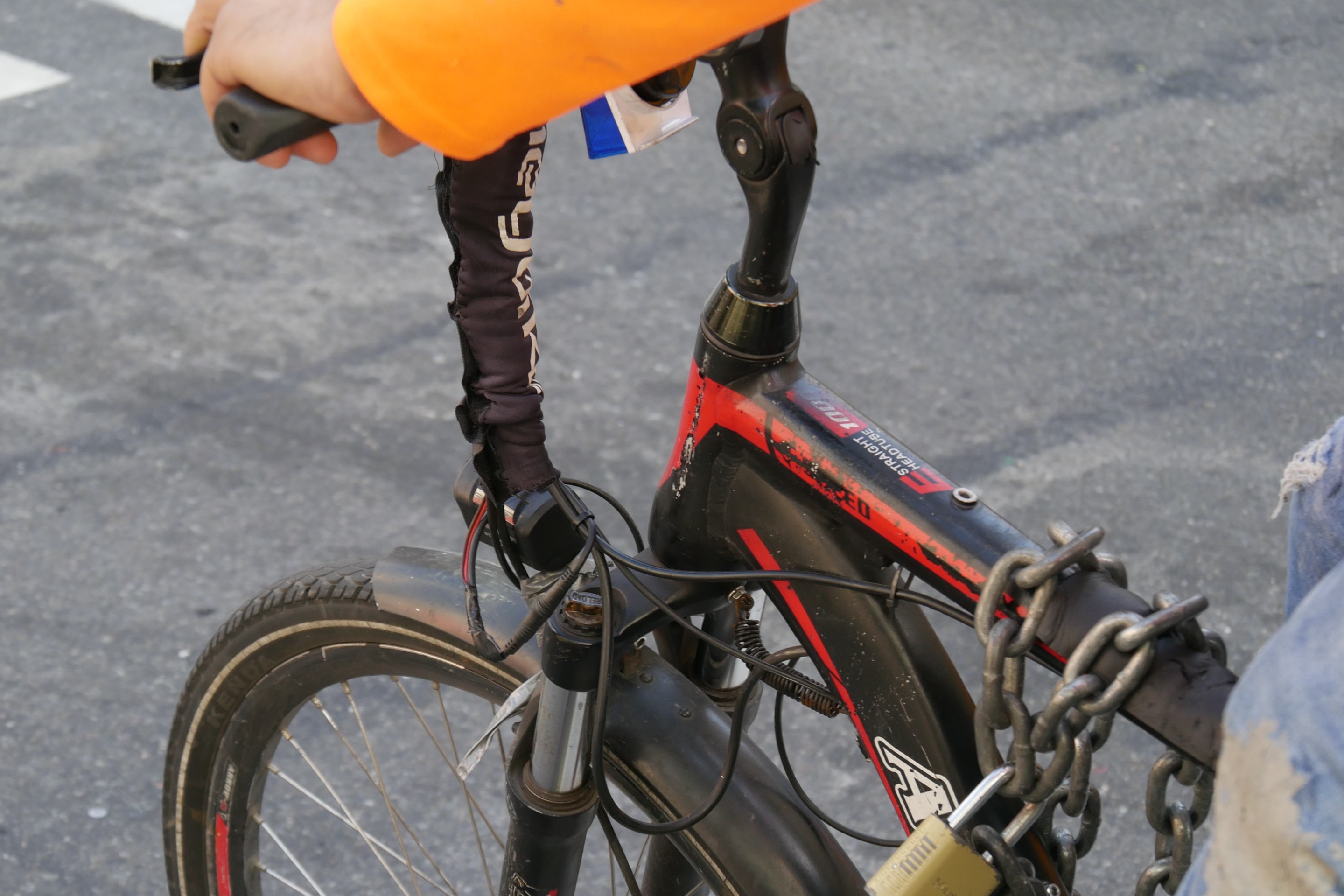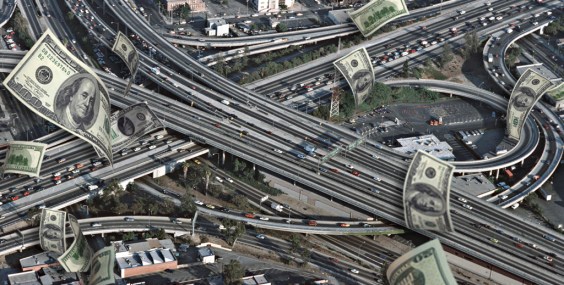With exactly two weeks left to go in the Democratic primary for mayor, polling frontrunner Andrew Cuomo hasn't said a peep about how he feels about bus lanes, bike lanes or any number of transportation issues.
His "public safety" plan addressed subway crime and e-bike safety, and his "affordability" plan mentioned free buses and an expansion of the city's "fair fares" discount transit program, but the Cuomo campaign has not said whether the candidate supports expanding bus, bike or pedestrian infrastructure in the city.
He's not said what he'd do to reduce fatal crashes involving motor vehicles, or whether he supports Mayor Adams's moves to repurpose parking spots for trash containerization. When Streetsblog asked Cuomo's campaign in May for his position on funding car-free open streets, a rep said that each location "will be reviewed on a case by case basis" if the ex-gov becomes mayor.
Cuomo campaign spokesman Rich Azzopardi told Streetsblog back in April that it planned to release a transportation plan. Reached for comment this week, a campaign spokeswoman reiterated that a plan is coming.
"Still have weeks to go," Cuomo campaign spokeswoman Esther Jensen said in an email last Friday.
As mayor, Cuomo would oversee the city Department of Transportation, which designs and maintains city streets, including regulation of outdoor dining and streets, and facilitates redesigns that enhance bike and pedestrian safety. He'd also runs Parks, which operates greenways and bike paths; the Department of Citywide Administrative Services, which runs the city's vehicle fleet; the NYPD, which is currently engaged in a crackdown on cyclists; and more.
Yet all we know about Cuomo's transportation plans are that:
- He wants to increase the number of cops on the subways.
- He wants to "increase participation" in Fair Fares and "explore revival" of the state's free buses pilot.
- He wants to put license plates on e-bikes (though at Wednesday's debate, he suggested registering only delivery workers and that it should be done through the app companies).
- He will review car-free open street locations "on a case-by-case basis."
- His campaign told The City that he "will expand bike lanes for ordinary New Yorkers where possible, balanced against concerns about congestion and dangerous use of e-bikes."
- The campaign also told The City he would roll back trash containerization requirements for smaller buildings. (Update, 6/10 12:17 p.m.: Cuomo told the Times he would expand containerization citywide. A campaign rep told Streetsblog he will do so "with common sense adjustments, flexibility, and closer communication with the people managing the trash every day.")
Council Speaker Adrienne Adams also lacks a transportation plan, but she is steeped in city issues by dint of her position at the helm of the Council. Cuomo, on the other hand, hasn't lived in the city for three decades.
Transportation plans also aren't worth much: Eric Adams promised 250 miles of protected bike lanes when he ran in 2021; he'd only built 87.5 as of the end of 2024. He's done even worse on bus lanes and busways.
"We don't know exactly how many promises everyone is going to keep, but we do know who, like Eric Adams, have over-promised," said Danny Pearlstein of the Riders Alliance, which is opposing both Adams and Cuomo in this year's election.
Cuomo's record as governor was "checkered," in the words of one advocate who spoke to Streetsblog: He passed congestion pricing, but only after he let subway service deteriorate for years while he focused on glitzy mega-projects and already-of-date-in-2025 USB ports on buses. He killed the joint city-state Select Bus Service program, widened highways and showed little interest in urban cycling infrastructure outside of state mega-projects.
As a candidate, Cuomo drives everywhere — despite living in, and having his campaign headquarters in, Manhattan's transit-rich Central Business District. He told the New York Times he takes the subway once every other week.
Cuomo "drives everywhere. He lives in Midtown Manhattan. He drives around Midtown Manhattan," Pearlstein said.
Pearlstein pointed to Rep. Adriano Espaillat's support of the ex-governor as a potential red flag: The Manhattan/Bronx congressman has thrown his political weight around on multiple occasions to scale back or kill street redesign projects that favor pedestrians, cyclists and bus riders — most recently on Fordham Road in The Bronx.
"Given his support from somebody like Congressman Espaillat, that dims riders hopes for the Fordham busway that would save time for 85,000 people a day."
Cuomo also draws support from the leaders of the Williamsburg Satmar Hasidic community, members of which have pushed the city to rip up the new Bedford Avenue protected bike lane and force cyclists onto deadly Classon Avenue.
Other candidates including former Comptroller Scott Stringer and Assembly Member Zohran Mamdani, have not put out "comprehensive" transportation-specific platforms, but made their positions clear in surveys and forums with advocates that Cuomo has eschewed, according to Eric McClure, executive director of the pro-bike, pro-transit StreetsPAC.
Like Cuomo, Stringer and Mamdani have plenty of plans and "policy memos" on their sites regarding other issues. The shortage of transportation plans sits in stark contrast to the 2021 mayoral election, according to McClure.
"Pretty much every serious candidate put out a pretty comprehensive transportation platform [in 2021]," said McClure, citing Comptroller Brad Lander's "astounding" plan as the only exception.
As mayor, Cuomo would have control over whether the city follows the benchmarks set by the City Council-legislated "streets master plan" — which Adams supported as a candidate but completely failed to see through as mayor. And while no one questions Cuomo's interest in e-bike safety, as mayor he'll have to answer for the many more injuries and deaths caused by cars and trucks.
"For somebody who is you know, on paper, the leading candidate to become the next mayor of New York City, to not have a comprehensive transportation vision is highly, highly concerning, especially when you looked at peer cities like Paris, which are running laps around us," McClure said.
"Most of the leading candidates, especially those with progressive chops, have really embraced the importance of advancing New York City's work on street safety and public transportation and public space. I just don't feel like it's a priority for Cuomo, and he's not doing anything to change that perception."






